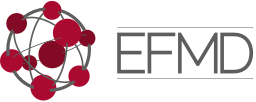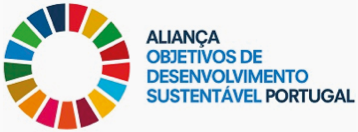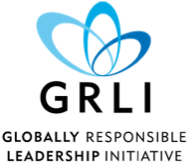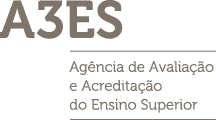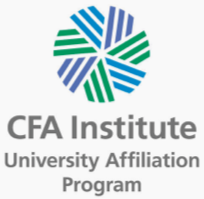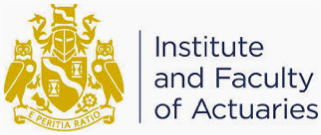
The PhD in Economic and Organizational Sociology, launched in 1991, aims to generate knowledge and produce research in this specific field of study.
The PhD in Economic and Organizational Sociology is a 3rd cycle programme, created in 1991 and hosted by SOCIUS-Research Center for Economic and Organizational Sociology, a research unit integrated into the CSG-Research in Social Sciences and Management consortium, which obtained the classification of "Very Good" in the last evaluation of the FCT - Foundation for Science and Technology (2019).
Doctoral students will be able to carry out their research in the fields of economic sociology, organizational studies, sustainable development, science and technology studies, social finance studies, classical sociological theory, cultural economics, migration studies, gender studies, theory of value, among others. These domains include a variety of objects of study, such as public policies, corporate social responsibility, corporate governance, formal and informal markets, environmental sustainability, alternative economies and culture “do-it-yourself”, copyright, cultural industries, money and payment systems, professions and work or third sector organizations. Different methodological approaches are contemplated, from statistical analysis (descriptive and inferential), through experimental studies, participatory methodologies, ethnography and network analysis.
This Program is aimed at anyone wishing to obtain a doctoral degree and perform highly qualified functions in the public sector, in the private sector and in the social economy sector, in the national or international context. Such functions include teaching and research, direction and management of organizations, consultancy, training, journalism, planning, elaboration of development projects, as well as design and evaluation of public policies, projects or programs.
Research Centers:
These are some of the issues discussed in the curricular units and around which research has been consolidated.
What are the effects of a rapidly changing global economy? How do organizations evolve and adapt?
What is the role of science in the Anthropocene era?
What is the role of states, markets, institutions, organizations and individuals in the constitution of economic and financial practices?
What explanatory factors can be found, historically or currently, among economics, politics, culture, technology or the environment?
How are citizens involved in decision-making processes that concern their economic and financial daily life?
What balance or imbalance exists between employment and the other dimensions of human life in the 21st century?
Candidates for the school's doctorates can apply for various grants, namely FCT grants (awarded by FCT or ISEG research centers) and, in some cases, ULisboa grants. The criteria, rules and regulations for applying for scholarships are detailed on our website.
In some cases, PhD students can enroll in projects hosted by research centers or be supported by them. For more information, contact the doctoral coordinator.
The Program intends to transmit and produce knowledge from research in the domains between economy, finance and organizations of contemporary society. It proposes looking at markets and organizations as variable, complex and sometimes contradictory realities, challenging doctoral students to new readings of neoclassical economics and questioning the limitations of focusing on the rationality of “homo economicus”.
Candidates must submit a brief research proposal at the time of application. Upon admission to the Program, a tutor will be assigned to monitor the thesis project during the 1st year of the program, which will be presented and discussed in the Research Seminars.
At the end of the 1st year, a consolidated version of the project will be evaluated by a panel composed of representatives from ISEG and other institutions, who may suggest changes or recommend that the doctoral student discontinue his/her studies. If the thesis project is accepted, it is registered and the name of the supervisor is confirmed.
The process of preparing, researching and writing the thesis lasts two academic years, in accordance with ISEG's General Regulations for Study Cycles Leading to a Doctoral Degree.
This program is aimed at anyone wishing to obtain a doctoral degree and perform highly qualified functions in the public sector, in the private sector and in the social economy sector, in the national or international context. Such functions include teaching and research, direction and management of organizations, consultancy, training, journalism, planning, elaboration of development projects, as well as design and evaluation of public policies, projects or programs.
| Year 1 - Semester 1 | Teacher | Credits |
|---|---|---|
| Economic Sociology | Rafael Marques, Joao Carlos Graça | 7.5 |
| Organizations and Work | Maria Joao Santos, Daniel Seabra Lopes | 7.5 |
| Research Methods and Techniques | Daniel Seabra Lopes, Amílcar Moreira | 7.5 |
| Research Seminar I | Sara Falcão Casaca and Amílcar Moreira | 7.5 |
| Year 1 - Semester 2 | Teacher | Credits |
|---|---|---|
| Themes and Debates in Economic Sociology | Sofia Bento | 7.5 |
| Themes and Debates in Organizations and Work | Sara Falcão Casaca, Marta Varanda | 7.5 |
| Optional | – | 7.5 |
| Research Seminar II | Marta Varanda and Amílcar Moreira | 7.5 |
| year 2 | Teacher | Credits |
|---|---|---|
| Thesis/Research Seminar III | Sara Falcão Casaca | 60 |
| Year 3 | Teacher | Credits |
|---|---|---|
| Research Thesis/Seminar IV | Sara Falcão Casaca | 60 |
See the description of each Curricular Unit here.
Candidates must hold a Master's degree in the scientific areas of Sociology, Economics, Management or other social sciences deemed appropriate by the Scientific Committee. Holders of a degree in one of the aforementioned scientific areas with a minimum classification of 16 out of 20 or, exceptionally, with a lower classification, may also apply, provided that the respective curriculum reveals scientific preparation or relevant professional experience. Other candidates who demonstrate the ability to monitor the program may also apply.
The selection is made by the Scientific Committee based on the following criteria:
| 1st year | 2nd – 3rd Year | 4th – 6th Year |
| € 3,000 | € 2,000 | € 1,000 |
The PhD program lasts for 3 years. For each additional year the amount to be settled is 1,000.00 euros.



